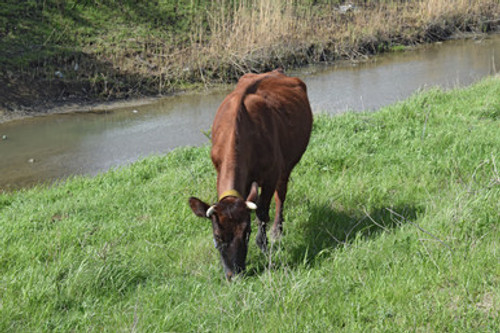

Western Wheatgrass
Description
Western Wheatgrass, also known as Bluestem Wheatgrass, is one of the most common and abundant wheatgrasses in the West. It is a long-lived, cool-season, erect, sod former, growing from 1 to 2 feet tall. The stems and leaves are often covered with a waxy coating which gives them a blue-green color. Seed heads are long and slender.
Western Wheatgrass reproduces by very aggressive, long, slender rhizomes, as well as by seed. The rhizomes may grow 3 to 4 feet in one growing season and develop a heavy sod under favorable conditions. This species is best adapted to well-drained bottomland but is commonly found on open plains, hillsides, and benchlands. Nutritious forage is produced early in the spring before the warm-season grasses become green.
It is palatable to all classes of livestock, and sheep especially enjoy the seed heads. Deer and elk also rate Western Wheatgrass as a choice feed. It cures well on the ground and provides good winter forage. It's relative drought tolerance, combined with strong rhizomatous root systems and adaptation to a variety of soils, make this species ideal for reclamation in areas receiving 12 to 20 inches of annual precipitation. Its low growth form, vigorous sod, and low maintenance requirements make it ideal for ground cover purposes. This grass can be used in urban areas where irrigation water is limited to provide ground cover and to stabilize ditch banks, dikes, and roadsides.
Picture Provided By: Mike Haddock
Growing Height: 12 to 36"
Min Yearly Rainfall: 10"
Seeds Per Pound: 110,000
Acre Rate: 12 lbs
Lbs per 1000 sq feet: 2 lb
Growing Regions: Pacific Northwest, Midwest, and Upper Southwest
Zone
Planting Information
Plant Characteristics



